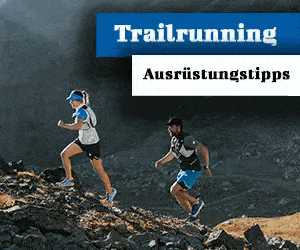For many of us there is nothing better than cooking in the open air. If you want to buy an outdoor stove, it is not easy. Because THE perfect cooker does not exist. Each model has its specific advantages and disadvantages that need to be weighed up. In today's article, we show which stove works best in which situation.
A contribution by Andrea Brändli and Nora Scheel from Bächli Bergsport
First of all: When choosing between the different models, it is important to choose between gas and gas stoves (or multi-fuel stoves). Both gas and gasoline have their advantages and disadvantages.
Gas cooker: clean, but sensitive to high and low temperatures
Pure gas cookers are very clean and easy to use. Your flame can be regulated precisely, which also allows slow cooking on a small scale. The big disadvantage of gas cookers is that cartridges are not available all over the world. In addition, most cartridges cannot be refilled, but must be disposed of or recycled after use. In addition, their performance decreases at low temperatures and high altitudes due to the lower pressure. In the case of cookers with a gas hose, it is possible to turn the cartridge upside down, especially in colder temperatures, in order to generate more pressure. Choosing the right gas mixture (4-season gas) also helps.
Gas stove: Available everywhere, but requires more maintenance
In contrast, gasoline works reliably at all temperatures and is available all over the world. Multi-fuel stoves are often the better choice, especially when traveling to foreign countries. The disadvantage of multifuel stoves, however, is that they are somewhat more complicated to use and require more maintenance and care. In addition, gasoline smokes during combustion.
Whether a gas or a multi-fuel stove is preferable depends on the conditions in which the stove is used. So think about the situations in which you will use the cooker most often and weigh the advantages and disadvantages accordingly.
The best outdoor cookers for alpine adventures
Three criteria are particularly important on expeditions and alpine bivouacs: the stove must function reliably at high altitude and in cold temperatures, and it must be light.
Our favorites:
- OmniLite Ti from Primus: The lightweight version of the classic cooker. Can be operated with liquid gas, petrol, petroleum, kerosene and diesel. Ultralight thanks to titanium components. 340 g (cooker and pump).
- XGK EX from MSR: A robust and reliable expedition cooker with a self-cleaning shaking nozzle. Works with pure gasoline, diesel or petroleum. 384 g (cooker and pump).
- PocketRocket Deluxe by MSR: Functional gas cooker with pressure regulator that works well even in cold temperatures. Simple and ultra light. 83 g.
Omnifuel II by Primus


The best outdoor stoves when traveling
When traveling, the stove should be able to be packed in a space-saving manner and be robust enough not to be damaged in the backpack backpack. Depending on the destination, gas cartridges are difficult or impossible to find. In this case, multi-fuel stoves are more flexible than gas stoves. It should also be borne in mind that neither gas cartridges nor gasoline may be transported on an airplane. Gas cartridges must therefore be left at home and petrol bottles emptied and rinsed out well.
These are our favorites when traveling:
- Whisperlite Universal from MSR: Completely revised classic cooker. Stable, powerful, light and easy to maintain. Quiet in operation. Can run on gasoline, kerosene or gas. 318 g (cooker and pump).
- Gravity III from Primus: Stable and powerful gas cooker with hose line that works even at low temperatures. Particularly suitable for large saucepans. 260 g (cooker).
- OmniFuel II from Primus: Stable and durable classic cooker. Can run on liquefied petroleum gas, gasoline, diesel, petroleum and even kerosene. 450 g (cooker and pump).
Whisperlite Universal from MSR

The best stoves for hiking and trekking
The stove has to work reliably when trekking, since you are often away from civilization. Because the entire luggage is carried itself, it should also be light and space-saving.
We can particularly recommend these three stoves for hikes and trekking:
- Vega by Optimus: Compact and ultra-light gas cooker with hose line and high stability. The cartridge can be turned upside down at low temperatures or with little gas. 384 g (cooker and pump).
- Flash PCS from Jetboil: Space and energy saving gas cooker system. The 1 liter pot, the heat exchanger and the burner form one unit. Ideal for quick water heating or for simple dishes. 370 g (pot and stove).
- Primetech Stove Set by Primus: Economical, light and space-saving gas cooker system. The set includes two pots, one with a heat exchanger. The cooker is also compatible with most other pans. Total weight 730 g (whole set, without cartridge).
Vega by Optimus


The best stoves for camping
Weight and space usually don't play such a big role when camping. For this, a little more comfort is desired: The stove should be easy to use and also allow more elaborate dishes (even in just one pot). Gas stoves are usually the right choice when camping because they are easy to use and can be finely regulated.
- Tupike Stove Piezo by Primus: The luxury gas stove for camping by bus, in groups or with the family. Two burners. Including grill plate. 4 g (without cartridge).
- WindBurner Personal Stove System: Thanks to a special burner design with heat radiator and saucepan with heat exchanger, the stove loses little cooking power in windy surroundings and is therefore very efficient.
Windburner Group Stove System from MSR

That might interest you
About Bächli mountain sports
Bächli mountain sports is the leading Swiss specialist shop for climbing, mountaineering, expeditions, hiking, ski touring and snowshoeing. At currently 13 locations in Switzerland, Bächli Bergsport offers its customers expert advice and high-quality service. Published on LACRUX Bächli mountain sports periodically exciting contributions to the topics climbing, bouldering and mountaineering.
+ + +
Credits: Text and picture Bächli Bergsport


